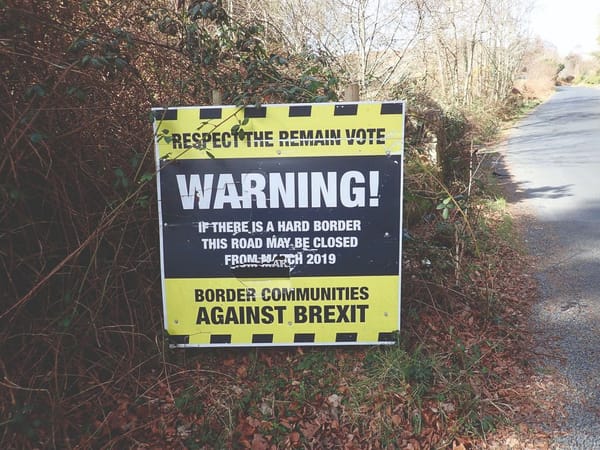If You Don’t Already Know: Why an Impeachment Inquiry against Trump has Been Opened
A primer on the impeachment inquiry into Donald Trump’s phone call with Ukraine’s Zelensky

For months, Speaker of the House Nancy Pelosi has been resisting calls from progressive members of her party to open an impeachment inquiry into President Donald Trump. But within days of breaking news about a whistle-blower complaint about Trump, she has come out in support of it. On September 25th, Pelosi announced that the House of Representatives would be moving forward with an official impeachment investigation, directing the six House committees currently investigating the administration to proceed with their work under the impeachment umbrella.
Two factors have previously prevented Pelosi from supporting impeachment. The first is that Pelosi wants to protect the seats of freshmen Democrats who represent moderate districts where impeachment would be unpopular. These moderates hold the key to the Democrats’ power in Congress – without them, Democrats would not be in control of the House and Pelosi would not be speaker. Since House seats are up for re-election every two years, having the Democratic Party support impeachment could hurt the re-election chances of these moderates.
The second is that impeachment is a political decision – in other words, it must pass a vote in the House and in the Senate to be upheld. The Senate is currently controlled by Republicans, none of whom show any desire at all to allow impeachment onto the Senate floor for voting. Furthermore, opening an impeachment inquiry could backfire for the investigating party if it is unpopular with the general public. Bill Clinton’s impeachment followed such a path – impeachment was pushed forward by Congressional Republicans but not supported by the public, resulting in backlash against the Republicans for seeming overly critical and a surge in public popularity and sympathy for Clinton.
On September 23rd, 7 of these moderate Democrats – whose seats Pelosi have been trying to protect – published an op-ed in the Washinton Post delineating their decision to support impeachment. These members all have backgrounds in national security, and to that effect they have found what President Trump did unacceptable.
“The United States has been very good to Ukraine... I wouldn’t say that it’s reciprocal”, Trump said to the President of Ukraine Volodymyr Zelensky during a July 25th phone call. Ukraine receives military aid from the United States to protect themselves against Russian-backed separatist forces in the east of the country. 391 million dollars of this aid had been approved by Congress weeks earlier, but unbeknownst to officials had been halted from being delivered by the Trump administration.
In the call, President Zelensky acknowledges the financial support given by the United States. Trump then says, “I would like you to do us a favour”. Trump asks for two things: (1) to have the Ukrainian Attorney General open an investigation into the origins of the Mueller Investigation, which he believes stems from information that the Ukrainians and Democrats colluded to give to the FBI; and (2) for Ukraine to cooperate with Rudy Giuliani (Trump’s personal attorney) and Attorney General of the United States William Barr in the investigation of whether Joe Biden had previously abused his power as Vice President to have a prosecutor improperly fired. The prosecutor was investigating a Ukrainian oligarch who owned the largest private energy company in Ukraine, the board of which, Joe Biden’s son, Hunter Biden, had sat on for five years. Neither of these assertions by Trump have any evidence backing them.
The whistle blower’s complaint, filed on August 12th by a member of the National Security Council staff, describes a violation of Trump’s constitutional duties as a President. According to the allegations, Trump is holding back aid that Congress has already appropriated for Ukraine as leverage, to pressure Zelensky into cooperating in an investigation against a political rival. If proven, Trump used the power of his office to solicit interference from a foreign country in the 2020 US election, which is against federal elections law. Not to mention that by withholding the 391 million dollars of aid appropriated for Ukraine, Trump has undermined Congress by utilising it for personal gain.
The complaint also alleges abuse of the national security process with regards to how transcripts of the phone call were handled. Upon realizing how politically damaging the call may be if released, White House lawyers directed senior White House officials to restrict access to all records of the phone call, especially the word for word transcript that is customary for all phone calls between the President and foreign leaders. Instead of the standard computer systems used to store these transcripts, the records of the call were uploaded onto a special server with restricted access, used for handling classified and sensitive material for national security. As the call did not contain any remotely sensitive information that should warrant its restricted access, it has been described as a misuse of the system and an abuse of classification privileges by the White House. The whistle blower alleges that this has been done with multiple calls in the past.
What, then, should we expect from the proceeding impeachment inquiry? Likely a battle over executive privilege, a legal fight over Congress’ subpoena power over the Executive branch, and much more public and media scrutiny.









